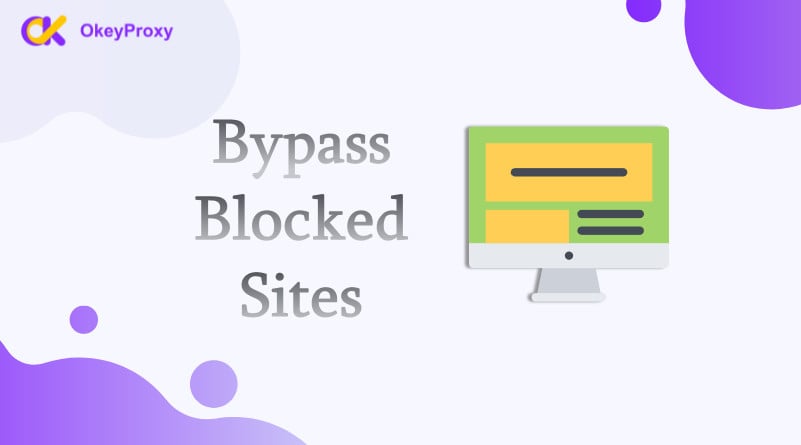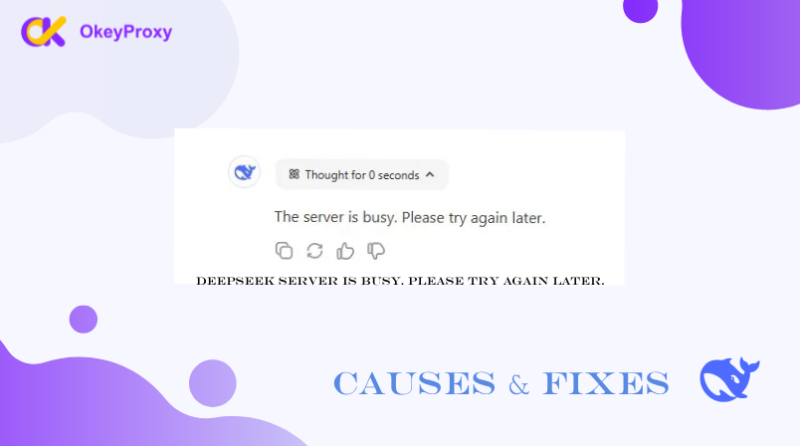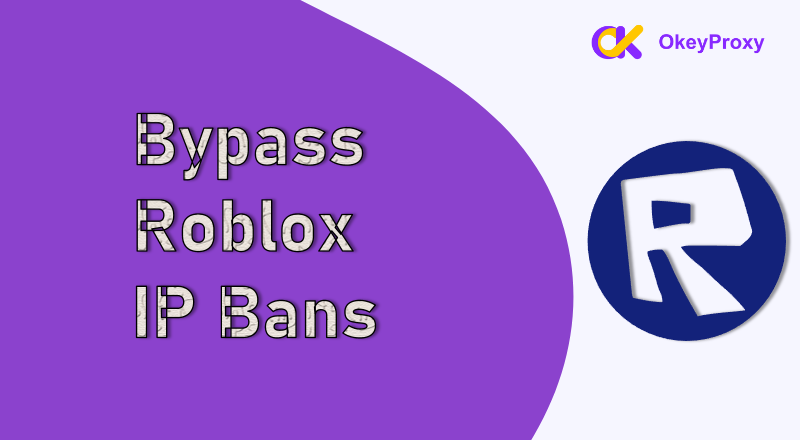Accessing blocked sites can be essential for various reasons, such as retrieving information, connecting with colleagues, or enjoying region-locked content. Whether restrictions are in place due to geographic limitations, organizational policies, or government regulations, there are reliable methods to bypass these blocks. This guide covers the most effective ways to bypass blocked sites safely and efficiently.
Why people encounter sites that were blocked?
People may encounter blocked sites for various reasons, often stemming from restrictions set by governments, organizations, or even website administrators themselves. Some of the main causes include:
-
Government Censorship
In some countries, governments restrict access to websites that are considered inappropriate, politically sensitive, or contrary to cultural norms. This can include social media platforms, news sites, or any content that challenges government policies.
-
Geographical Restrictions
Many websites, especially streaming services and content providers, restrict access based on the user’s geographic location. This is often due to licensing agreements that limit content availability to specific countries or regions.
-
Workplace/Educational Institution Restrictions
Many organizations, schools, and workplaces block sites to reduce distractions, increase productivity, or prevent exposure to inappropriate material on their networks.
-
Content Filtering by ISPs
Internet service providers (ISPs) may block certain websites that they consider harmful, illegal, or against policy. Some ISPs also enforce content filtering based on regional regulations.
-
Website Restrictions
Certain websites may restrict access from specific regions or IP addresses due to security concerns, such as preventing cyberattacks or controlling user access based on location.
-
Parental Controls and Personal Filters
Parental control tools or personal security software can block certain types of websites deemed inappropriate, such as sites with explicit content or potential security risks.
-
IP-Based Bans and Blacklists
Websites may block access to specific IP addresses or IP ranges if they detect unusual activity, such as potential bot behavior or repeated violations of site terms.
How can i bypass blocked sites at school & work?
Accessing blocked sites at school or work can be challenging due to network restrictions put in place to maintain security, productivity, and compliance. However, several methods can help bypass these restrictions anywhere while respecting network policies:
1. Use a Proxy Server
A proxy server acts as an intermediary between the user and the internet, masking the user’s IP address and making it appear as though they are accessing the site from a different location. Many proxies offer a free version, but premium proxies provide faster speeds, multiple server locations, and better security.
Benefits of Proxies:
- Easy to set up for web browsing.
- No need to install software.
- Can be browser-specific, meaning only some internet traffic is routed through the proxy.
Recommended Proxy Services:
- OkeyProxy: Known for its reliable IP masking and support for static and rotating residential IPs, OkeyProxy provides access to restricted content efficiently.

- KProxy: Free and easy to use, KProxy is a browser-based option that works on multiple devices.
More Information: School Proxies, Proxy Browsers, OkeyProxy Reviews
2. Use a Virtual Private Network (VPN)
VPNs encrypt all internet traffic and route it through a secure server, masking the IP address and providing complete anonymity. VPNs are effective for bypassing blocked sites on networks with strict security measures and are ideal for accessing geo-blocked content on platforms like Netflix or Hulu.
Benefits of VPNs:
- Complete data encryption, protecting online privacy.
- High-speed servers optimized for streaming and browsing.
- Comprehensive coverage, securing all apps and browsers on the device.
Top VPNs for Bypassing Blocks:
- NordVPN: Known for its high-speed servers and robust security features, NordVPN offers excellent coverage across various regions.
- ExpressVPN: With a vast server network and strong encryption protocols, ExpressVPN is ideal for users who need high-level security and reliability.
3. Use a Smart DNS Service
Smart DNS services are specialized in bypassing geo-blocks by rerouting DNS requests through servers in a specified location, allowing access to region-specific content without changing the IP address. Smart DNS is commonly used for streaming services, as it is faster than a VPN but doesn’t encrypt data.
Benefits of Smart DNS:
- No impact on browsing speed.
- Suitable for streaming geo-blocked content.
- Compatible with a wide range of devices, including smart TVs and gaming consoles.
Popular Smart DNS Providers:
- Unlocator: Allows access to various streaming platforms with easy setup instructions.
- Smart DNS Proxy: Known for its compatibility with multiple devices and straightforward user interface.
4. Use the Tor Browser
The Tor (The Onion Router) network is designed for anonymity and security, routing internet traffic through multiple servers to obscure the user’s identity and IP address. The Tor Browser is ideal for accessing blocked sites, especially in regions with heavy internet censorship.

Benefits of Tor:
- Complete anonymity and privacy, making it difficult to track.
- Free and open-source, with a strong reputation for bypassing restrictions.
- Especially effective in regions with high censorship.
Drawbacks:
- Slower speeds due to multiple relay nodes.
- Some websites may restrict or block Tor traffic.
5. Try HTTPS Instead of HTTP
Sometimes, websites are blocked by their HTTP address rather than HTTPS. Simply adding “https://” in the URL bar may bypass the block, as some systems overlook HTTPS links in their filtering process. However, this is not effective for all blocks, especially those enforced at the network level.
When This Works Best:
- Situations where light filtering is applied, such as school or workplace networks.
- Websites that have both HTTP and HTTPS versions.
6. Use Google Translate or Google Cache
Google Translate and Google Cache can serve as indirect methods to access blocked sites. By translating a URL into a different language (even if the translation is the same as the original language), users can access the content through Google’s servers. Google Cache, on the other hand, displays a saved version of the page, often bypassing restrictions.

Benefits:
- Works without any software or configuration.
- Useful for accessing specific blocked pages without continuous site access.
Limitations:
- Google Cache may show an outdated version of the content.
- May not work for sites requiring logins or frequently updated content.
7. Use a Mobile Hotspot
If the blocked site restriction is due to a network filter, such as at a workplace or school, using a mobile hotspot may bypass the restriction. This method involves using mobile data to connect to the internet instead of the restricted Wi-Fi network.
Benefits:
- Effective for bypassing local network restrictions.
- Does not require additional software.
Drawbacks:
- Consumes mobile data, which may incur costs.
- Dependent on mobile network strength and speed.
Considerations after bypassing blocked sites
Once access to blocked sites has been achieved, there are several critical considerations to keep in mind to ensure secure and effective browsing:
Data Privacy and Security
- Encryption: It is essential to ensure that any traffic to and from the site remains encrypted, especially when using proxies or VPNs. Public Wi-Fi networks and even some private connections may be susceptible to interception.
- Secure Connection: Look for HTTPS on websites to ensure that data exchange is secure. Avoid entering sensitive information on sites without HTTPS encryption.
Compliance with Local and Institutional Policies
- Legal and Ethical Implications: Accessing blocked content may have legal repercussions, depending on the location and the site in question. Be sure to understand the legal boundaries for accessing certain sites in the area.
- Policy Adherence: If using a work or school network, be mindful of the institution’s policies regarding restricted sites, as bypassing restrictions may lead to consequences like loss of network access or disciplinary action.
Performance and Connection Stability
- Reduced Speed: Accessing content through proxies or VPNs can lead to slower connection speeds, depending on server location and load. Some sites may also detect and throttle traffic from proxy or VPN sources.
- Service Reliability: Choose tools with minimal downtime and reliable customer support. Low-quality or free proxies may experience frequent interruptions.
Avoiding Detection and Blocking
- Switching IP Addresses: Some websites actively detect and block VPN and proxy IP addresses. Using dynamic or rotating IP addresses, like those provided by residential proxies, can help maintain access over time.
- Avoiding Suspicious Activity: Sites may block access if they detect high traffic volume from the same IP. Moderate the browsing or use a service that changes IP addresses frequently.
Adherence to Site Terms of Service
- Avoiding Bots and Automation: Automated tools for scraping or other activities may lead to account bans or IP blocks. Use reputable proxies, such as residential or static proxies, to lower the risk of detection.
- Understanding Usage Limits: Many proxies or VPNs impose usage limits on free plans. Exceeding these limits may disrupt service or require an upgrade to a premium plan.
Carefully considering these aspects ensures a more secure, reliable, and compliant experience after bypassing restrictions.
Conclusion
Bypassing blocked sites is possible with several techniques, each suited to different scenarios. Proxies, VPNs, Smart DNS, and the Tor Browser are robust solutions, each offering unique advantages in terms of speed, privacy, and compatibility. For high-security environments, a VPN or Tor is often the best choice, while proxies and Smart DNS can be more suitable for streaming or lighter restrictions.
Consider the specific requirements and risks when choosing a method to access restricted content. For reliable and secure proxy services, exploring providers like OkeyProxy may offer effective options for a range of online needs.












